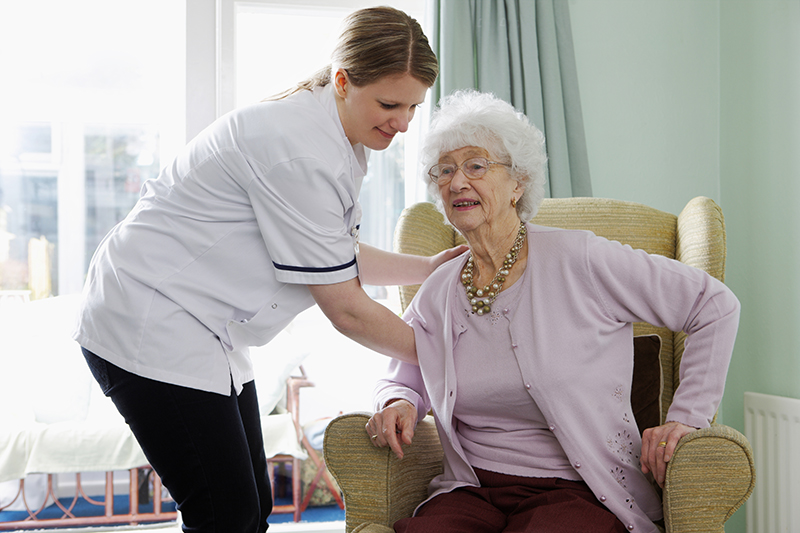



“Positive Outcomes” focus on enabling individuals with dementia to achieve the best possible outcome for themselves, based on their situation, ability, likes and wants. A positive outcome for one person will be very different to the next.
It is important to know your own role in any planning process in order to achieve positive outcomes. It is important to understand how to work with the individual and their families/carers and discuss expectations of the support required for the individual to engage in meaningful activities.
Working to achieve a co-productive approach in the planning can show support and enable the achievement of positive outcomes.
Mae “Canlyniadau Cadarnhaol” yn canolbwyntio ar alluogi unigolion â dementia i gyflawni'r canlyniad gorau posibl iddynt eu hunain, yn seiliedig ar eu sefyllfa, eu gallu, eu hoff bethau a'u dymuniadau. Bydd canlyniad cadarnhaol unigolion yn wahanol iawn i’w gilydd.
Mae'n bwysig gwybod eich rôl eich hun mewn unrhyw broses gynllunio er mwyn cyflawni canlyniadau cadarnhaol. Mae'n bwysig deall sut i weithio gyda'r unigolyn a'i deulu/gofalwyr a thrafod disgwyliadau o ran y cymorth sydd ei angen er mwyn i'r unigolyn gymryd rhan mewn gweithgareddau ystyrlon.
Drwy weithio i gytuno ar ddull cydgynhyrchiol ar y cam cynllunio, gellir dangos cefnogaeth a sicrhau bod modd cyflawni canlyniadau cadarnhaol.

Supporting the individual by finding out what they are able to do and what they like doing, and any challenges to achieving this can contribute to supporting them in achieving positive outcomes. Considering their physical and mental health status and evaluating the risks associated with achieving an individual goal is essential.
Planning with the individual and empowering them with the right support will help them to achieve the positive outcomes.
Gall cefnogi'r unigolyn trwy ddarganfod beth y gallant ei wneud a beth y mae'n hoffi ei wneud, ac unrhyw heriau i gyflawni hyn, helpu i’w cefnogi er mwyn sicrhau canlyniadau cadarnhaol. Mae ystyried statws iechyd corfforol a meddyliol a gwerthuso'r risgiau sy'n gysylltiedig â chyflawni nod unigol yn hanfodol.
Cynllunio ar y cyd â'r unigolyn a'i rymuso drwy roi'r cymorth y gallai fod ei angen arno i gyflawni'r canlyniadau cadarnhaol.

Strengths based approaches support an individual’s independence, resilience and ability to continue to make choices. They also contribute towards an individual’s well-being.
Focusing on someone’s needs can lead to a lack in self-confidence and an over reliance on others for support. Focusing on their strengths will improve and maintain an individual’s well-being.
Enabling the person to be as independent as possible for as long as possible, minimising challenges through the provision of appropriate equipment or coping strategies and recognising the contribution that they are able to make results in more positive outcomes. Whilst the person may require care and support, this support is targeted and enabling, not disabling.
Mae dulliau gweithredu seiliedig ar gryfderau yn cefnogi annibyniaeth unigolyn, ei wydnwch a'i allu i barhau i wneud dewisiadau. Maent hefyd yn cyfrannu at les unigolyn.
Gall canolbwyntio ar anghenion rhywun arwain at ddiffyg hunanhyder a gorddibyniaeth ar eraill am gefnogaeth. Bydd canolbwyntio ar eu cryfderau yn gwella ac yn cynnal lles unigolyn.
Mae galluogi’r unigolyn i fod mor annibynnol â phosibl cyhyd ag y bo modd, lleihau heriau trwy ddarparu offer priodol neu strategaethau ymdopi a chydnabod y cyfraniad y gallant ei wneud yn arwain at ganlyniadau mwy cadarnhaol. Er y gall fod angen gofal a chefnogaeth ar yr unigolyn, mae'r gefnogaeth hon wedi'i thargedu ac yn eu galluogi, nid eu analluogi.
It is important to discuss with both the individual and their family the support they feel is needed in order for them to engage in a variety of meaningful activities.
Individuals should be encouraged to do as much for themselves as possible and engage in a variety of activities both at home and in the community.
However, families may become risk averse and concerned that their loved one isn’t capable of making decisions for themselves, or that they may come to harm.
It is the carer’s responsibility to listen to both the individual and the family and agree the level of support that will be offered to meet the individual’s needs whilst offering reassurance, guidance and support to the family.
Mae'n bwysig trafod â'r unigolyn a'i deulu y cymorth sydd ei angen yn eu barn nhw er mwyn i'r unigolyn allu cymryd rhan mewn amrywiaeth o weithgareddau ystyrlon.
Dylid annog unigolion i wneud cymaint â phosibl drostynt eu hunain a chymryd rhan mewn amrywiaeth o weithgareddau yn y cartref ac yn y gymuned.
Fodd bynnag, gall teuluoedd ddymuno peidio a chymryd risgiau a phoeni nad yw eu hanwylyd yn gallu gwneud penderfyniadau drostynt eu hunain, neu y gallant ddod i niwed.
Cyfrifoldeb y gofalwr yw gwrando ar yr unigolyn a'r teulu a chytuno ar lefel y gefnogaeth a gynigir i ddiwallu angen yr unigolyn wrth gynnig sicrwydd, arweiniad a chefnogaeth i'r teulu.
Working together with the individuals and their families/carers can ensure that all areas of an individual’s needs are considered and agreed. Individuals will feel informed and involved in decisions.
Decisions can be made with the individual’s best interests at heart. The individual’s family/carers are the ones who have known the individual the longest, so they can often make a valid contribution to the planning and decisions being made.
Co-productive planning improves relationships and trust, builds upon an individual’s capabilities and breaks down barriers that individuals may have.
Drwy gydweithio â'r unigolion a'u teuluoedd/gofalwyr, gellir sicrhau bod pawb yn ystyried ac yn cytuno ar bob agwedd ar anghenion yr unigolyn. Bydd unigolion yn teimlo eu bod yn cael gwybod am benderfyniadau a'u cynnwys ynddynt.
Gall penderfyniadau gael eu gwneud gyda budd gorau'r unigolyn mewn golwg. Teulu/gofalwyr yr unigolyn sydd wedi adnabod yr unigolyn ers yr amser hiraf, felly yn aml mae ganddynt gyfraniad dilys i'w wneud i'r gwaith cynllunio a'r penderfyniadau a wneir.
Mae cynllunio cydgynhyrchiol yn gwella cydberthnasau ac ymddiriedaeth, yn adeiladu ar alluoedd unigolyn ac yn chwalu rhwystrau y gall unigolion eu hwynebu.

With dementia, there could be a situation where the individual previously carried out a specific activity with ease but now there are potential risks associated with it. It is important that you treat each person as an individual and don’t compare them with someone else who has dementia. Their abilities and their cognitive state will be different.
You need to work with the individuals and their families to acknowledge what they hope to achieve. Simplifying or grading activities can ensure success, minimise risks and promote independence, a sense of value and self-worth.
Working together to maintain relationships, effective communication and trust ensures that the person with dementia fulfills their potential and receives the right level of care and support.
Pan fydd gan unigolyn ddementia, mae'n bosibl y ceir sefyllfa lle mae risgiau posib yn gysylltiedig â gweithgaredd penodol roedd yr unigolyn yn gallu ei chyflawni'n hawdd o'r blaen. Mae'n bwysig eich bod yn trin pob person fel unigolyn ac nad ydych yn ei gymharu â rhywun arall sydd â dementia. Bydd ei alluoedd a'i gyflwr gwybyddol yn wahanol.
Mae angen i chi weithio gyda'r unigolion a'u teuluoedd i gydnabod yr hyn maen nhw'n gobeithio'i gyflawni. Gall symleiddio neu raddio gweithgareddau sicrhau llwyddiant, lleihau risgiau a hyrwyddo annibyniaeth, ymdeimlad o werth a hunan-werth.
Mae gweithio gyda'n gilydd i gynnal perthnasoedd, cyfathrebu effeithiol ac ymddiriedaeth yn sicrhau bod yr unigolyn â dementia yn cyflawni ei botensial ac yn derbyn y lefel gywir o ofal a chefnogaeth.

Communicating with the individual and their families/carers in order to enable the individual with dementia to achieve positive outcomes is the most important part of planning. Part of the planning should be finding out about what the individual wants to achieve by holding open and honest discussions with all involved.
Your knowledge of local services, resources, support groups and dementia friendly activities will allow you to signpost people appropriately to achieve positive outcomes.
Cyfathrebu â'r unigolyn a'u teuluoedd/gofalwyr er mwyn galluogi'r unigolyn â dementia i sicrhau canlyniadau cadarnhaol yw rhan bwysicaf cynllunio. Dylai rhan o'r cynllunio fod am yr hyn y mae'r unigolyn eisiau ei gyflawni trwy gynnal trafodaethau agored a gonest gyda phawb sy'n gysylltiedig.
Bydd eich gwybodaeth am wasanaethau, adnoddau, grwpiau cymorth lleol a gweithgareddau sy'n gyfeillgar i ddementia yn caniatáu ichi gyfeirio pobl yn briodol er mwyn sicrhau canlyniadau cadarnhaol.